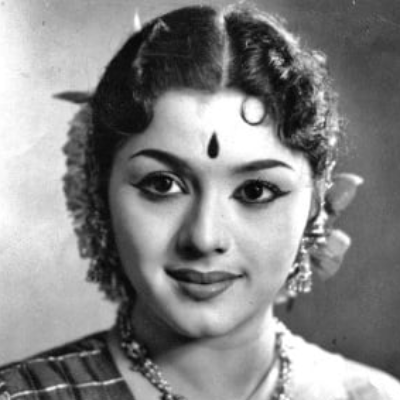This section is for paid subscribers only. Our subscription is only $3700/- for one full year.
You get unlimited access to all paid section and features on the website with this subscription.
Subscribe to read full article
This section is for paid subscribers only. Our subscription is only $37/- for one full year.
You get unlimited access to all paid section and features on the website with this subscription.
Not ready for a full subscription?
You can access this article for $2, and have it saved to your account for one year.
- Release Date26/08/1955
- GenreFamily Drama
- FormatB-W
- LanguageTamil
- Run Time182 min
- Length5322.10 meters
- Number of Reels19
- Gauge35 mm
- Censor RatingU
- Censor Certificate Number12982
- Certificate Date23/08/1955
The story starts with a birthday celebration of a young girl Sulochana, daughter of Vasudevan (Sivaji Ganesan) or Vasu. A guest asks Vasu on why the birthday celebrations are grand every year. Vasu narrates his story which goes 14 years back. Karunakaran (S. V. Subbiah) brings up his brother Vasu (Master Baji) after the death of their parents and both grow up very close to each other.
Karunakaran, after much hesitation, agrees to marry Sulochana (Padmini) and Vasu likes her at the first glimpse itself. Sulochana is a loving wife to Karunakaran and a lovable sister-in-law to Vasu and Vasu looks upon her as his own mother. After a year, Sulochana delivers a stillborn baby boy. Years roll by and Vasu becomes a college professor. Vasu presents Sulochana gold bangles from his first salary. Karunakaran and Sulochana arrange Vasu’s marriage with Rao Bahadur Ponnambalam (K. Sarangapani) and Akilandam’s (K. N. Kamalam) daughter Prabha (M. N. Rajam). Akilandam is domineering over her children and her husband and Ponnambalam follows her orders.
Prabha’s brother Kalaamani (K.A. Thangavelu) is a good-natured person. Prabha’s character is the opposite of Sulochana’s but the latter adjust with her. Prabha dislikes Vasu’s deep affection and respect for Sulochana. Akilandam advises Vasu to live separately with Prabha, which he does not like and scolds her and does not agree with Prabha’s plans. Kalaamani works out a game plan to reform his sister and mother. Prabha delivers a baby boy at her parent’s place. Same time, Sulochana also delivers a baby boy but the baby dies after birth. Vasu does not bring Prabha and baby home as he is unhappy with Prabha’s attitude against his sister-in-law. Sulochana keeps asking him to bring them back but he does not. Meanwhile, Kalaamani and his newly married wife Nila (Ragini) stage-manage a play at home to make his mother and sister realize the value of their spouses. Finally, at the request of Sulochana, Vasu brings Prabha and baby home.
Sulochana takes care of Baby Ravi (Master Ravi) like her own son. As Ravi grows, Prabha does not like his closeness with Sulochana and forbids her from being close to her son. Ravi falls ill due to the separation from Sulochana and becomes serious. Now Prabha realizes her mistake and Sulochana nurses him day and night ignoring her health and does not eat well. Ravi does not recover even after four weeks of treatment and the doctor loses hope but Sulochana does not. As a last resort, she takes Ravi to her regular temple and pleads with God to take her life and spare Ravi’s. Seeing her unconditional love for her son, Prabha apologizes to Sulochana. Ravi recovers dramatically at the temple but Sulochana collapses out of weakness. She is brought home and treated but she becomes seriously ill and dies after thanking Karunakaran and Vasu for her good life and promises them that she will take rebirth in that house.
Sulochana’s body is cremated. Karunakaran and Vasu are shocked to see the gold bangles given by Vasu were not damaged during the cremation. A baby girl was born on the same day of her death after a year to Vasu and Prabha and the whole family feels that it is Sulochana who is reborn. The gold bangles of Sulochana are passed over to the baby girl. The film ends with Vasu narrating the story of how Sulochana was reborn to them.
The film had popular songs, ‘Unmai anbu endrum anainthidadha theebamai vilangum…’, ‘Kandukonden nan kandukonden…’, ‘Engal kula devi neeye …’, ‘Bhagyavathi naan bhagyavathi …’, ‘Oru murai than varum kadhai solla kurum…’, ‘Deva sadha soga thirunaalaam …’, ‘Neela vanna kanna vaada …’,’Ketta penmani buddhi ketta penmani…’ and ‘Nee varavillaiyenil adharvadhedhu …’. Out of them, the song, ‘Nila vanna kanna vaada…’ by R. Balasaraswathi became a cult song and remain popular today.
[from the book Pride of Tamil Cinema:1931 to 2013 by G Dhananjayan, Blue Ocean Publishers, 2014]
Cast
Crew
-
BannerVaidya Films
-
Director
-
Producer
-
Music Director
-
Lyricist
-
Screenplay
-
Dialogues
-
Cinematography
-
Editing
-
Art Director/Production Design









.jpg)



